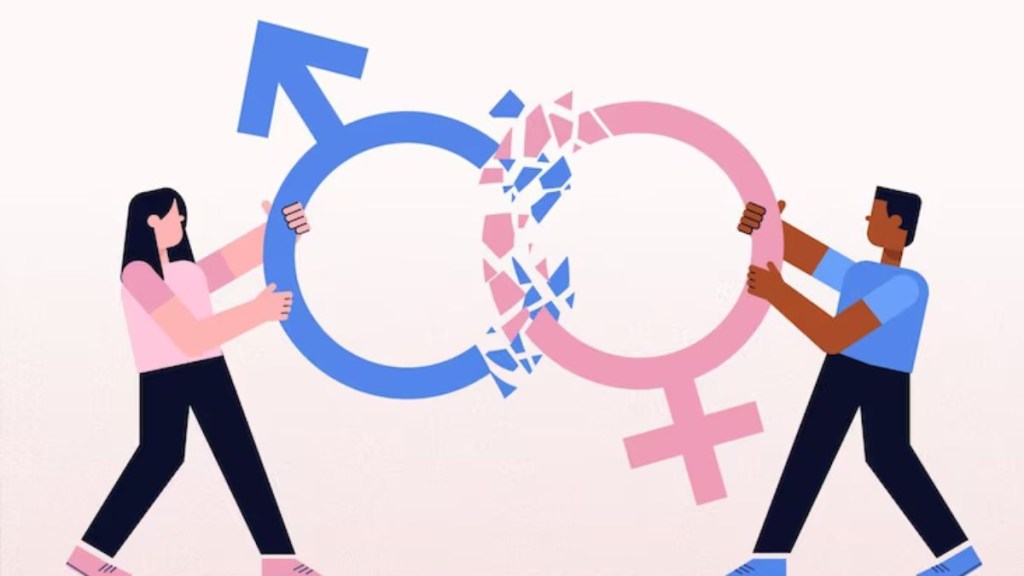By Nayana Chowdhury
The recent incident at Kolkata’s RG Kar Medical College Hospital has once again kindled public outrage, resulting in nationwide protests. As a civilised society, it deeply pains us to witness similar incidents time and again. However, the “othering” should bother us. The anger, the calls for justice and protests, the pain, and the sadness are all very justified and reasonable reactions. However, they fail to address the root cause of gender-based violence that continues to shake our conscience from time to time. In these times of protests and collectivisation, lies a huge possibility of self-reflection that can lead to sustainable change. We all need to reflect on how our everyday actions and words can potentially contribute to a culture of violence in and around us, leading to instances of violence against women and girls.
As we navigate through these difficult times, we need to come together as a society to identify sustainable and long-term solutions, focusing on cultural change, education, and continuous engagement, especially with men and boys to end violence against women and girls. We need to realise there will be no quick fix. Harsh punishments do not work, accountability works, reflection works, and all of us playing our part works.
The Need for Sustainable Solutions
While public outrage is an expression of one’s anger and anguish, and at times needed for the authorities to wake up and take notice that things have gone too far, it cannot be seen as a sustainable solution to this malady of gender-based violence. The public outrages are short-lived and fade away quickly as rage by its nature is not sustainable. Rage is also alienating. It will hence fizzle out and without a long-term plan to use the momentum, there would be no sustained pressure that is required for systemic changes. This therefore will not break the cycle of violence, leaving us vulnerable to the next shocking headline.
Change should start at the basic level where we become intolerant of casual sexual remarks. More often than not, we tend to dismiss casual sexism and gender-based discrimination as harmless jokes or traditional, and similarly, misogynistic behaviours, such as lewd comments or inappropriate messages, are normalized, paving the way for more serious crimes. Collectively, we should stop this normalisation as it often trivialises the gravity of gender-based violence.
Men and boys have a crucial role in making this happen. We need to stop feeding and encouraging the everyday sexism and toxic masculinity traits ingrained in us. Just as we focus on empowering young girls to aspire beyond traditional roles, we must equally engage boys in conversations about respect, consent, and gender equality from an early age. Everyone thrives in an environment of equality.
Education and Sensitisation: Engagement of Men
Engaging with male allies is crucial. People often ask, can men become allies in this? Yes, the thousands of men and boys out there demanding justice show how repulsed they are at gender-based violence. We should see this as a willingness to co-create a gender-equal world. However, we need to work with young boys and men to engage in education and sensitisation of fellow men at a large scale on how they can be a part of the effort to end gender-based violence. If the repulsion against gender-based violence can be tapped towards constructive action we have an end in sight. For example, in workplaces, schools, and public spaces, men can be inspired to intervene when witnessing misogyny. Only such collective participation can make a tangible impact. Everyone can start at their level and start small. One can admonish behaviours consisting of a colleague passing lewd jokes and comments that trivialise or dehumanise women. Such instant admonishments can act as deterrents for others.
It’s about creating an environment where such behaviour becomes socially unacceptable. This will create a culture of mutual respect and admiration.
Additionally, those in positions of authority have a particularly significant responsibility. Community leaders, influencers, and men in power must take visible stands against sexism and violence. They must unequivocally denounce violence. Their actions can shape public attitudes and set examples for others to follow.
A Call for Systemic Change
While stronger laws protecting women against violence are crucial, they are ineffective without proper enforcement. The laws around street harassment must be stronger. Serious and quick action must be taken to ensure justice is delivered. For example, the transfer of the Kolkata case to the CBI highlights the need for more robust and sensitive handling of such cases. An increase in the rate of conviction will bolster the morale of the public who denounce gender-based violence.
As laid out above, ending violence against women requires a sustained, multi-faceted approach. It demands more than just reactive outrage; it requires proactive, continuous engagement at all levels of society. Men, as much as women, need to be part of the solution through education, advocacy, and responsible behaviour.
The solution to ending gender-based violence lies in transforming our cultural norms and attitudes. Men must transition from bystanders or temporary allies into lifelong advocates for women’s dignity and rights as human beings. This transformation is not about protecting women; it’s about creating a society where everyone can thrive without fear.
True change begins with each one of us. It starts in our homes, schools, and workplaces. It’s in the small, everyday actions that we take to challenge sexism and promote equality. Only through such sustained, collective effort can we hope to create a society where incidents like the one in Kolkata become relics of a past we’ve decisively left behind.
[Nayana Chowdhury is Chief Program Officer at Breakthrough – an organisation engaged in making gender-based violence unacceptable by transforming the culture that permits it. Views are personal]

